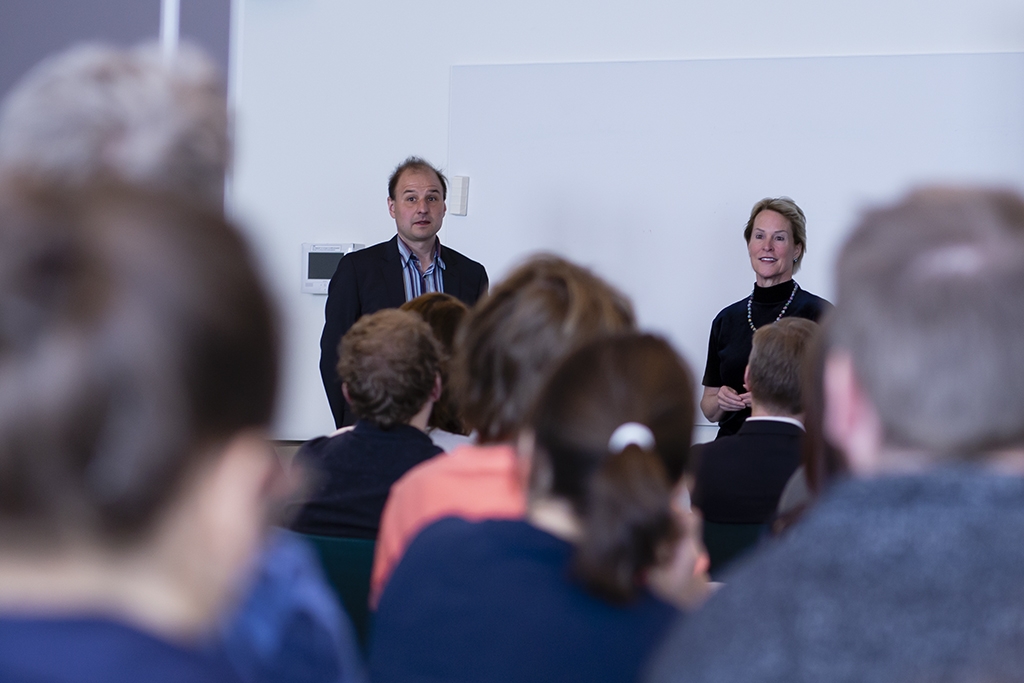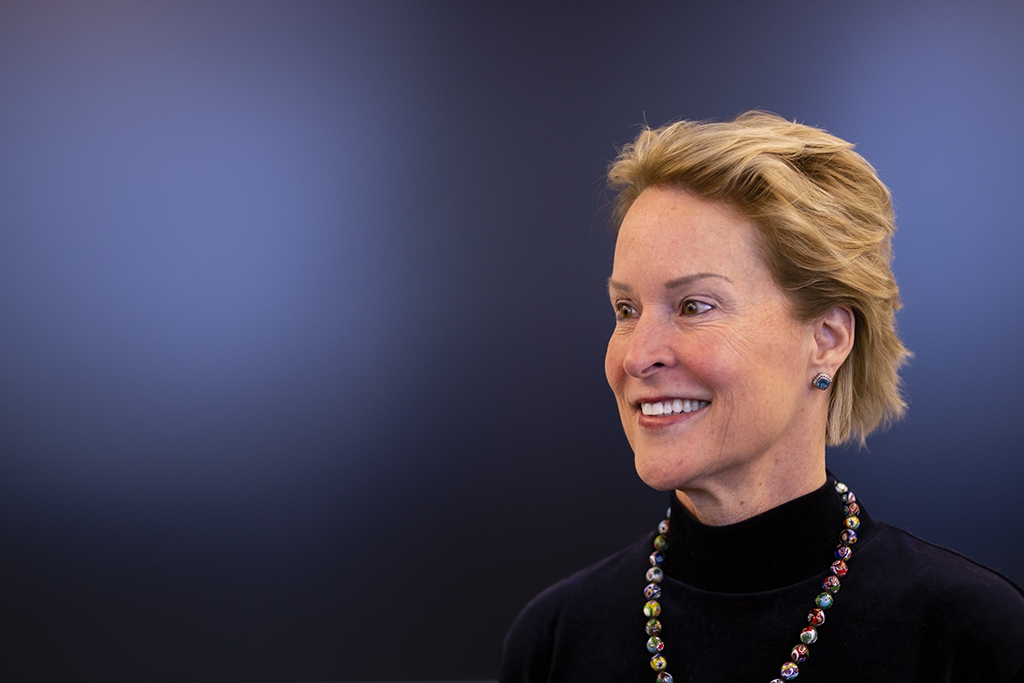Frances Arnold creates new protein catalysts
Frances Arnold, Professor of Chemical Engineering, Bioengineering and Biochemistry at the California Institute of Technology, was awarded the Nobel Prize in Chemistry in 2018 for her work in directed evolution, making her the first American woman to ever win the prestigious prize. On May 8, she visited SciLifeLab to hold the seminar: Innovation by Evolution: Bringing New Chemistry to Life and discuss with researchers.
During the seminar, organized by Per-Olof Syrén (SciLifeLab/KTH), Frances Arnold talked about innovation: How to create new protein catalysts and expanding the space of genetically encoded enzyme functions.
“We use the most powerful biological design process, evolution, to optimize existing enzymes and invent new ones, thereby circumventing our profound ignorance of how sequence encodes function”, says Frances Arnold.

These days, DNA can be sequenced at a low cost. So, what is the problem? According to Frances Arnold, it is the same problem that existed before the new sequencing technologies came into place.
“We know how to rewrite and edit, but we cannot compose – we do not know how to write a better enzyme”.
To deal with this problem, she suggests that we should not do it ourselves, but help nature do it for us.
“Nature can add new elements if you give her a reason to. Nature is poised to perform this chemistry. She can do it better than humans can, and if you ask her nicely she will do that for you”, says Frances Arnold.
She describes the approach to making new enzymes as “expensive, slow and painful”. Statistical methods of machine learning has the potential to mitigate this, and could help make predictions beforehand.
“With machine learning you can actually make jumps in sequence space. I think that has a great future”, says Frances Arnold.
When asked what drove her to pursue her research despite criticism, she answers that you have to listen to criticism, take the pieces that are useful and do something with them.
“Everybody told me how ignorant I was, but I had a different, fresh, way of looking at it, that proved to be useful. What drove me forward was that I knew I was right very early on”, says Frances Arnold.





